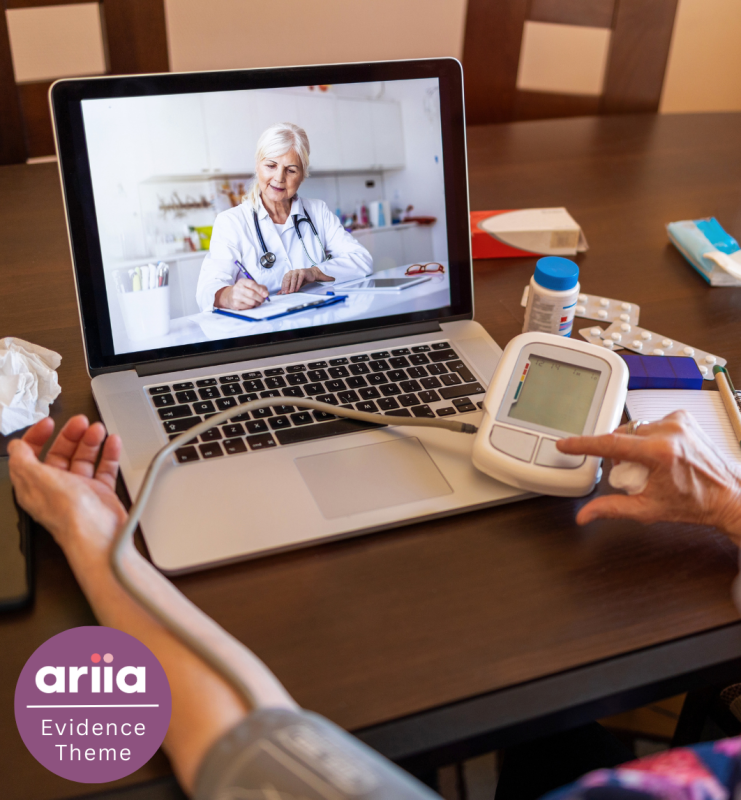Welcome to ARIIA First Nations Hub
Aboriginal and Torres Strait Islander people should be aware that this website contains images, voices and names of deceased persons.


Dignity is an important consideration in aged care to ensure older people maintain their sense of value and worth regardless of their physical or cognitive abilities. Technology use should be used to support care and not violate dignity. This resource from ARIIA is a short easy-to-read summary of the research evidence.

Telehealth uses ICT to deliver healthcare services remotely. Factors that improve or reduce the acceptance of telehealth in aged care were identified as part of a scoping review of the human factors associated with technology uptake. This resource from ARIIA is a short easy-to-read summary of the research evidence.

Judith Leeson reflects on her own career pathway and how there are similarities with that of many workers in community and residential aged care. Reflecting on how people often learn informally as they work, Judith writes to encourage care workers to break out of their comfort zone and consider embarking on a new learning journey.

Some technologies used in aged care settings raise privacy concerns for older people, their families, aged care staff, and providers. This resource from ARIIA is a short easy-to-read summary of the research evidence.

There can be no one-size-fits-all approach to successful implementation due to the relationships between the technical, human, and organisational factors in complex care settings such as aged care. This resource from ARIIA is a short easy-to-read summary of the research evidence.

This report from the Aged Care Royal Commission discusses the importance of ensuring care, dignity and respect for older adults and care workers are supported. It details how these principles are integrated in aged care reforms and services and in relation to technology.

Dr Merran Cooper, CEO of Touchstone Life Care, describes the benefits of, and barriers to, introducing digital technologies into the aged care setting, highlighting that research has begun into the use of technology to improve communication between elderly people, their carers, and aged care providers.

This webpage from the Aged Care Quality and Safety Commission provides a comprehensive presentation about personal information handling practices as required by the Privacy Act 1988 (Privacy Act) and the Australian Privacy Principles (APPs).

eHomeCare discusses the five key elements that will drive provider transformation. The five key elements include develop a dynamic strategy, put people, experience and outcomes at the heart of aged care, equip your team for care, collaboration and change, align operations and the environment with the new system and optimise the environment.

Christy Hunt, ELDAC’s Workforce Development Manager, describes some of her team’s initiatives for improving the palliative care skills and knowledge of the aged care workforce.